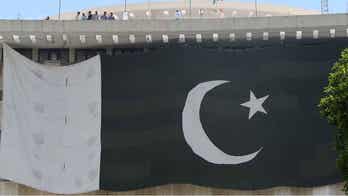Retired Gen. Kenneth McKenzie, former top security head of US Central Command, sounds the alarm over US bases in the Middle East becoming vulnerable to Iranian assault due to Tehran's advancements in missile capabilities.
Retired Gen. Kenneth McKenzie, a former top security head of the U.S. Central Command (CENTCOM), has warned that U.S. bases in the Middle East could face overwhelming Iranian missile fire. In a report released this week, McKenzie argued that U.S. bases in the Arabian Gulf are now susceptible to Iranian attacks due to Tehran's growing weapons capabilities.
McKenzie emphasized, "Our basing strategy is outdated and poorly positioned to meet the central threat in the region: Iran. By developing a flexible western basing network for America's air assets, we will complicate Iran's ability to target our forces and increase the cost of aggression."

US Bases in Middle East at Risk of Iranian Missile Fire, Warns Former CENTCOM Chief
He pointed out that some of the U.S.'s main bases in countries like Qatar, the UAE, and Bahrain, which were once considered deterrents against malicious actors, are now weak points in the U.S.'s regional force posture. With the advancement of technology and missile development, base placement needs to be reevaluated. McKenzie highlighted Iran's extensive short-range missile capabilities, while its medium- to long-range abilities remain limited.
"They have invested heavily in developing potent ballistic missile capabilities – theater range ballistic missiles, land attack cruise missiles, and drones," McKenzie noted. "These three capabilities represent relatively new capabilities in the region at scale, posing new threats. They can unleash more weapons into the battle than we can handle, even with advanced systems like Patriot missiles."

US Bases in Middle East at Risk of Iranian Missile Fire, Warns Former CENTCOM Chief
McKenzie stressed the need for the U.S. to start working with regional allies like Saudi Arabia, Jordan, Oman, and Egypt to relocate bases further away from Iran. He proposed identifying bases "as far west as possible where the U.S. can deploy aircraft, maintenance capabilities, refueling capabilities, and weapons, but which are out of reach of Iran."
When questioned about the willingness of these Middle Eastern nations to allow for the relocation of bases, McKenzie stated that his proposal had been discussed with partnering countries and expressed interest. He emphasized that base improvements in western Saudi Arabia would primarily benefit the Saudis in their self-defense capabilities.

US Bases in Middle East at Risk of Iranian Missile Fire, Warns Former CENTCOM Chief
McKenzie highlighted the dual-use nature of proposed bases, explaining that they would assist in defending Saudi Arabia and enhance their own defense capabilities. He also noted the security threat posed by Tehran's use of terrorist groups for proxy wars in the Middle East.
In his report, McKenzie argued, "Deterrence is only obtained by a credible demonstration of will and the capability to fight and win if needed. Deterrence must be ongoing; in the Middle East, it can have a very short half-life unless it is routinely refreshed."

US Bases in Middle East at Risk of Iranian Missile Fire, Warns Former CENTCOM Chief












